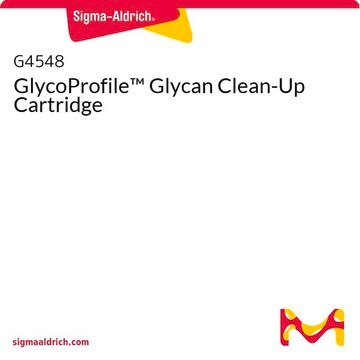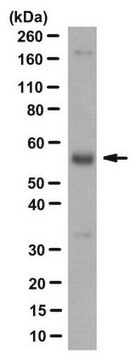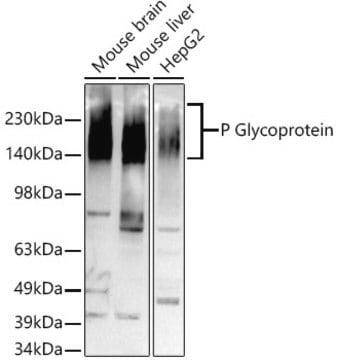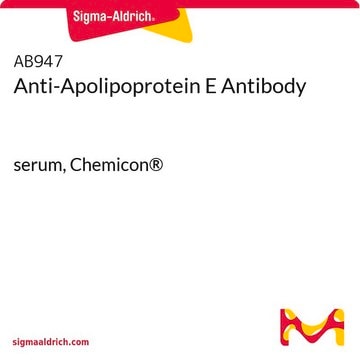ABS1030
Anti-Apolipoprotein D Antibody
serum, from rabbit
Synonim(y):
ApoD, Apolipoprotein D, Apo-D
Zaloguj sięWyświetlanie cen organizacyjnych i kontraktowych
About This Item
Kod UNSPSC:
12352203
eCl@ss:
32160702
NACRES:
NA.41
Polecane produkty
pochodzenie biologiczne
rabbit
Poziom jakości
forma przeciwciała
serum
rodzaj przeciwciała
primary antibodies
klon
polyclonal
reaktywność gatunkowa
human
metody
ELISA: suitable
western blot: suitable
numer dostępu NCBI
numer dostępu UniProt
Warunki transportu
dry ice
docelowa modyfikacja potranslacyjna
unmodified
informacje o genach
human ... APOD(347)
Opis ogólny
Apolipoprotein D (ADOP), also known as Apolipoprotein D, Apo-D, ApoD, and encoded by the gene name APOD, is a member of the calycin superfamily and the Lipocalin family. Recent studies have suggested that Apolipoprotein D is involved in the transport and binding of bilin. Additioanlly, studies have demonstrated that Apolipoprotein D is able to transport a variety of ligands in a number of different contexts. Apolipoprotein D is a homodimer located in the plasma, and it also exists as a disulfide-linked heterodimer with APOA2. Apolipoprotein D is expressed in the liver, intestine, pancreas, kidney, placenta, adrenal, spleen, fetal brain tissue and tears. Apolipoprotein D is primarily localized in HDL (60-65%), with most of the remainder in VHDL and only small amounts in VLDL and LDL.
Immunogen
Protein purified from human plasma corresponding to Apolipoprotein D.
Zastosowanie
Anti-Apolipoprotein D is an antibody against Apolipoprotein D for use in ELISA, WB.
ELISA Analysis: A representative lot of this antibody detected endogenous Apolipoprotein D in normal human plasma (Knipping, G., et al. Journal of Immunological Methods 202 1997. 85–95)
Western Blotting Analysis: A representative lot of this antibody at 1:5000 dilution detected endogenouse Apolipoprotein D in 5 µl of human plasma (Bottcher, A., et al. J. Lipid Res. 2000. 41: 905–915.)
Western Blotting Analysis: A representative lot of this antibody at 1:5000 dilution detected endogenouse Apolipoprotein D in 5 µl of human plasma (Bottcher, A., et al. J. Lipid Res. 2000. 41: 905–915.)
Research Category
Signaling
Signaling
Research Sub Category
Signaling Neuroscience
Signaling Neuroscience
Jakość
Evaluated by Western Blotting on purified human Apolipoprotein D
Western Blotting Analysis: A 1:1000 dilution of this antibody detected 0.05 µg of purified human Apolipoprotein D
Western Blotting Analysis: A 1:1000 dilution of this antibody detected 0.05 µg of purified human Apolipoprotein D
Opis wartości docelowych
~30 kDa observed, additional bands likely due to heavy N-glycosylation on this protein
Postać fizyczna
Rabbit polyclonal serum with 0.05% sodium azide.
Unpurified
Przechowywanie i stabilność
"Stable for 1 year at -20°C from date of receipt.
Handling Recommendations: Upon receipt and prior to removing the cap, centrifuge the vial and gently mix the solution. Aliquot into microcentrifuge tubes and store at -20°C. Avoid repeated freeze/thaw cycles, which may damage IgG and affect product performance."
Handling Recommendations: Upon receipt and prior to removing the cap, centrifuge the vial and gently mix the solution. Aliquot into microcentrifuge tubes and store at -20°C. Avoid repeated freeze/thaw cycles, which may damage IgG and affect product performance."
Inne uwagi
Concentration: Please refer to lot specific datasheet.
Oświadczenie o zrzeczeniu się odpowiedzialności
Unless otherwise stated in our catalog or other company documentation accompanying the product(s), our products are intended for research use only and are not to be used for any other purpose, which includes but is not limited to, unauthorized commercial uses, in vitro diagnostic uses, ex vivo or in vivo therapeutic uses or any type of consumption or application to humans or animals.
This page may contain text that has been machine translated.
Not finding the right product?
Try our Narzędzie selektora produktów.
Kod klasy składowania
10 - Combustible liquids
Klasa zagrożenia wodnego (WGK)
WGK 1
Certyfikaty analizy (CoA)
Poszukaj Certyfikaty analizy (CoA), wpisując numer partii/serii produktów. Numery serii i partii można znaleźć na etykiecie produktu po słowach „seria” lub „partia”.
Masz już ten produkt?
Dokumenty związane z niedawno zakupionymi produktami zostały zamieszczone w Bibliotece dokumentów.
Nasz zespół naukowców ma doświadczenie we wszystkich obszarach badań, w tym w naukach przyrodniczych, materiałoznawstwie, syntezie chemicznej, chromatografii, analityce i wielu innych dziedzinach.
Skontaktuj się z zespołem ds. pomocy technicznej








